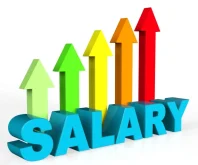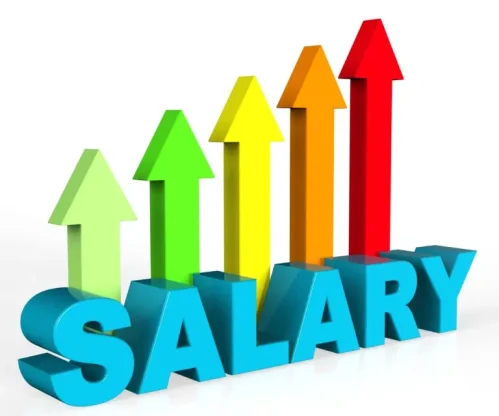
If you get a pay increase during an IVA you should be able to keep some of the extra money you earn. However your payments may also go up.
Included in this article:
- Will your IVA payments go up after a pay increase?
- How is any additional payment calculated?
- Does a pay increase mean your IVA finishes sooner?
- What if you earn overtime or a bonus?
Want help to start an IVA?
Give us a call: 0800 011 4712 or complete the form below to speak to one of our experts
Will your IVA payments go up after a Pay Increase?
Your income is likely to go up during your IVA. A common reason for this is you get a pay increase. Either your employer pays you more or you get a better paid job.
You might also have other types of income which increase such as pension or benefits payments.
If you do start earning more during your IVA, your monthly payment amount may also go up. However, the change is not automatic. It will only happen if your disposable income improves.
Your payments will not change if, after accounting for changes in your living expenses, your disposable income remains the same.
Struggling to get your head round all of this? We can help. Call us (0800 011 4712) or complete the form at the bottom of this page. The advice is free and confidential.
How is any additional IVA Payment calculated?
As soon as you receive a pay increase or any other permanent improvement in your income you must inform your IVA Company. Do not wait for your next annual review.
You will then be asked to submit a new income and living expenses budget. This will be reviewed.
If your disposable income has gone up, your IVA payment may also rise. However the rise in your payment will be less than the rise in disposable income.
This is because the terms of most IVAs state that you can keep 50% of any increase due to a rise in income. As such if your original disposable income was £100/mth and this has now risen to £200 a month your IVA payment will rise by just £50 to £150 a month.
Does a Pay Increase mean your IVA finishes sooner?
If your payments go up as a result of a pay increase you may think that this would then reduce the length of your IVA. It would seem logical as the amount you originally agreed to repay during your Arrangement will be paid faster.
This however is not the way an IVA works. If your payments increase the number of outstanding payments remain the same. The increase simply means that you pay more into the plan and your creditors receive more of the money they are owed.
The terms of most IVAs state that if possible (because of a wage increase or the like) you are obliged to pay 100% of the original debt you owed plus IP fees plus interest. The Arrangement will only finish early if all these amounts have been paid before the end of the agreed payment period.
An IVA can be settled early. However this will require you to offer a cash lump sum instead of your ongoing payments.
What if you earn Overtime or a Bonus
A one off overtime or a bonus payment is not regarded as a permanent pay increase. The extra money you get will not necessarily be replicated in following months. As such these payments are treated differently.
Where the overtime or bonus is 10% or less of your normal monthly take home pay you can keep the extra money. However where it exceeds 10% you must pay 50% of the excess into into your IVA.
In other words if your normal take home pay is £1000 and you earn up to an extra £100 (10%) in any particular month you can keep this money. However if you earn £300 more you keep £200. The other £100 must be paid into the agreement.
You must tell your IVA Company within 14 days if you earn overtime or receive a bonus.
Unhappy that your IVA payment has gone up after a pay increase? For free confidential advice, give us a call (0800 011 4712) or complete the form below.


